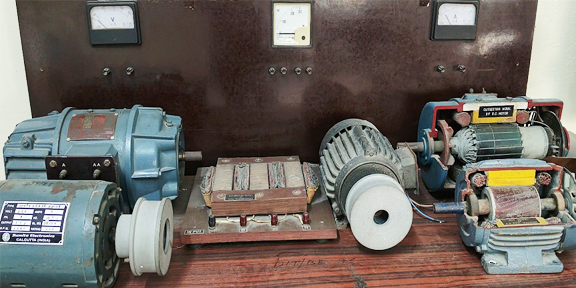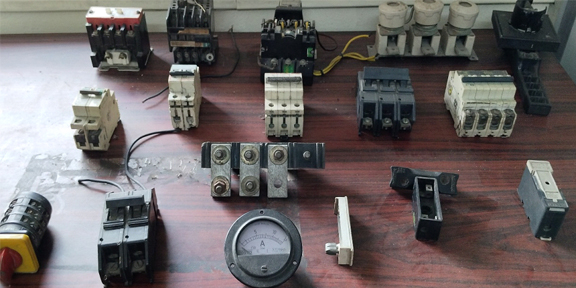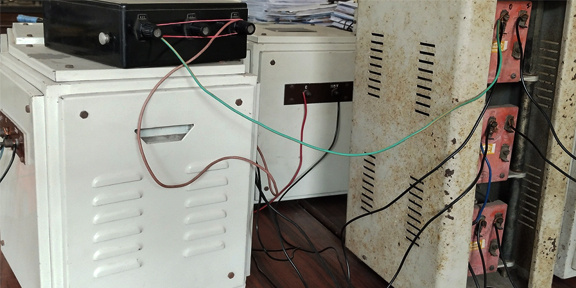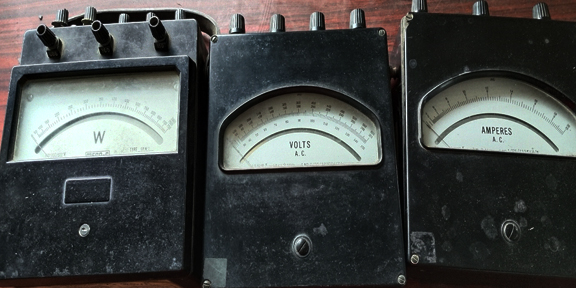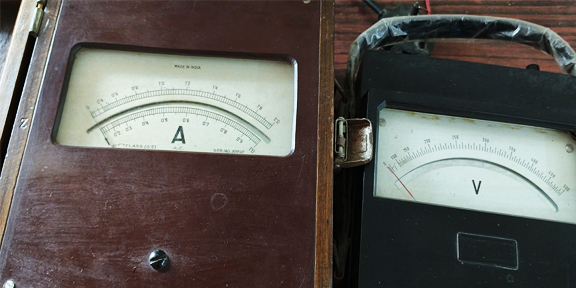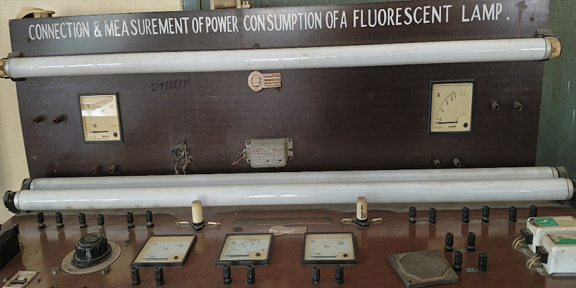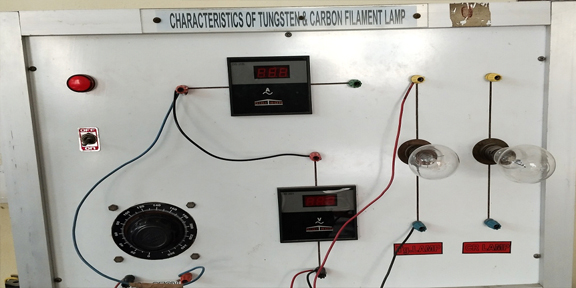| DEPARTMENT |
NAME OF THE SUBJECT WITH COURSE CODE |
SYLLABUS (NEW/OLD) |
YEAR & SEMESTER |
| EE |
Basic Electrical Engineering Lab (ES-EE-191) |
NEW |
1st year 1st Sem (UG) |
| ECE |
Basic Electrical Engineering Lab (ES-EE-191) |
NEW |
1st year 1st Sem (UG) |
| CSE |
Basic Electrical Engineering Lab (ES-EE-191) |
NEW |
1st year 1st Sem (UG) |
| ME |
Basic Electrical Engineering Lab (ES-EE-191) |
NEW |
1st year 1st Sem (UG) |
| CE |
Basic Electrical Engineering Lab (ES-EE-191) |
NEW |
1st year 1st Sem (UG) |
Objective:
The objective of Basic electrical laboratory is to learn the different basic and fundamental laws of electrical engineering along with practical experience with operation and applications of electromechanical energy conversion devices. It also aims to get the knowledge of the different electrical quantities like different lamps, RLC circuits, Transformers and Motors and various electrical measuring devices.
- • Understanding Concepts: Reinforcing theoretical knowledge by applying it to practical scenarios, helping students understand the concepts of various electrical quantities and measuring devices.
- • Skill Development: Developing practical skills in designing, analysing, and implementation of various electrical quantities.
- • Experimental Validation: Validating theoretical concepts through experimentation, allowing students to observe real-world behaviours and phenomena in Electrical Engineering field.
- • Troubleshooting: Developing problem-solving abilities by troubleshooting and diagnosing faults in various electrical circuits.
- • Safety Awareness: Instilling a strong sense of safety protocols and practices when working with high-power electrical circuits.
- • Project Work: Providing opportunities for students to work on projects that involve the design, simulation, and implementation of Electrical quantities.
- • Integration with Industry: Bridging the gap between academia and industry by exposing students to state-of-the-art equipment and technologies used in Electrical Engineering field.
Course covered in this Laboratory:
BASIC ELECTRICAL ENGINEERING LAB(PC-EE-191)
- First activity: Introduction to basic safety precautions and mentioning of the do’s and Don’ts. Noting down list of experiments to be performed, and instruction for writing the laboratory reports by the students. Group formation. Students are to be informed about the modalities of evaluation.
- Introduction and uses of following instrument: (a) Voltmeter (b) Ammeter (c) Multimeter (d) Oscilloscope Demonstration of real-life resistors, capacitors with colour code, inductors and autotransformer.
- Demonstration of cut-out sections of machines: DC machine, Induction machine, Synchronous machine and single-phase induction machine.
- Calibration of ammeter and Wattmeter.
- Determination of steady state and transient response of R-L, R-C and R-L-C circuit to a step change in voltage.
- Determination of steady state response of R-L and R-C and R-L-C circuit and calculation of impedance and power factor.
- Determination of resonance frequency and quality factor of series and parallel R-L-C Circuit.
- (a) Open circuit and short circuit test of a single-phase transformer (b) Load test of the transformer and determination of efficiency and regulation.
- Demonstration of three phase transformer connections. Voltage and current relationship, phase shifts between the primary and secondary side.
- Measurement of power in a three-phase unbalanced circuit by two wattmeter method.
- Determination of Torque –Speed characteristics of separately excited DC motor.
- Determination of Torque speed characteristics and observation of direction reversal by change of phase sequence of connection of Induction motor.
- Determination of operating characteristics of Synchronous generator.
- Demonstration of operation of (a) DC-DC converter (b) DC-AC converter (c) DC-AC converter for speed control of an Induction motor.
- Demonstration of components of LT switchgear.
Course outcome: After completion of this course, the learners will
- Analyse the different laws related to electrical engineering and compare the theoretical and practical values.
- Understand the operation and applications of electromechanical energy conversion devices.
- Understand identification and selection of various electrical components.
- Analyse the characteristics of various electrical components.
Major Facilities available in this laboratory:
- • Demo kit of different motor.
- • Single phase Variac and three phase Variac.
- • Fluorescent lamp Connection Set.
- • Carbon and tungsten filament lamp test setup.
- • Transformers (Single Phase and three phase).
- • Voltmeters, Ammeters, wattmeter’s and multimeters
- • Lt switchgear components
- • Three phase load box and single-phase load box.
